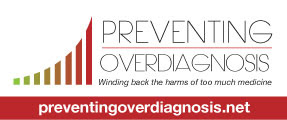In the fourth installment of an annual series, Drs. Roland Grad and Mark Ebell presented the "Top POEMs of 2018 Consistent with the Principles of the Choosing Wisely Campaign" in the September 1 issue of American Family Physician. Unlike the official list of Choosing Wisely campaign recommendations produced by the American Academy of Family Physicians and many other medical organizations, these suggested clinical actions were generated from recent research studies whose findings were judged by members of the Canadian Medical Association to help reduce overdiagnosis and overtreatment in practice. Drs. Grad and Ebell reviewed 13 of these POEMs (patient-oriented evidence that matters) in a previous article on the top 20 research studies of 2018 for primary care physicians.
This year's Choosing Wisely review article covered musculoskeletal conditions, respiratory disease, infections, cardiovascular disease, and miscellaneous topics. Here is a handy "cheat sheet":
1. Subacromial decompression surgery does not work.
2. Amitriptyline has no long-term benefits for chronic lower back pain.
3. In adults with mild asthma, as-needed budesonide/formoterol is as effective as a daily inhaled steroid.
4. In children with acute respiratory infections, broad-spectrum antibiotics are not more effective, but cause more adverse events, than narrow-spectrum antibiotics.
5. For chronic sinusitis, saline irrigation helps, and irrigation plus an intranasal steroid may help a little more.
6. A lower threshold for defining high blood pressure may harm patients at low risk for cardiovascular disease.
7. Don't order a high-sensitivity troponin level for a patient with a low pretest likelihood of myocardial infarction.
8. For women with symptomatic postmenopausal atrophic vaginitis, a nonprescription nonhormonal lubricant may be as effective as a vaginal estrogen tablet.
9. In adults with type 2 diabetes, NPH insulin is a cost-effective alternative to insulin analogues.
10. Ibuprofen is as effective as oral morphine for pain relief in children after minor outpatient orthopedic surgery, and has fewer side effects.
11. Skip the bath oil in children with atopic dermatitis.
Many of these overused tests and interventions are based on faulty pathophysiologic reasoning (e.g., if lowering blood pressure somewhat is good, then lowering blood pressure more should be even better).
Another valuable review of other research studies published in 2018 that highlighted medical overuse and health care services of questionable benefit appeared in JAMA Internal Medicine last week.
In a recent commentary on overuse in BMJ Evidence-Based Medicine, Drs. David Slawson and Allen Shaughnessy argued that "reducing overuse begins with the recognition and acceptance of the potential for unintended harm of our best intentions." They provided five examples of unintended harms of making medical decisions based on "what ought to work" rather than "what does work": activism gone awry (believing that no one is harmed by screening); innocent bystanders (traumatized loved ones of newborns with false positive screening results); the worried well we create (prediabetes); the butterfly effect (higher motor vehicle accident rates in patients with diabetes due to medication-induced hypoglycemia); and out of Oz and back to Kansas (over-extrapolating from research studies performed in ideal circumstances to real-world practice).
**
This post first appeared on the AFP Community Blog.
skip to main |
skip to sidebar

Common sense thoughts on public health and conservative medicine from a family doctor in Lancaster, PA.
Search This Blog
Blog Archive
About Me

- kennylin
- I am a board-certified Family Physician and Public Health consultant practicing in Lancaster, PA. I am also Deputy Editor of the journal American Family Physician and teach residents and medical students at Lancaster General Health / Penn Medicine Family Medicine Residency program. I am paid to provide independent editorial and medical consulting services to the American Academy of Family Physicians, WebMD, and others. However, the content of this blog reflects my personal views only, and does not represent the views of any medical institution, publisher, or the AAFP.










